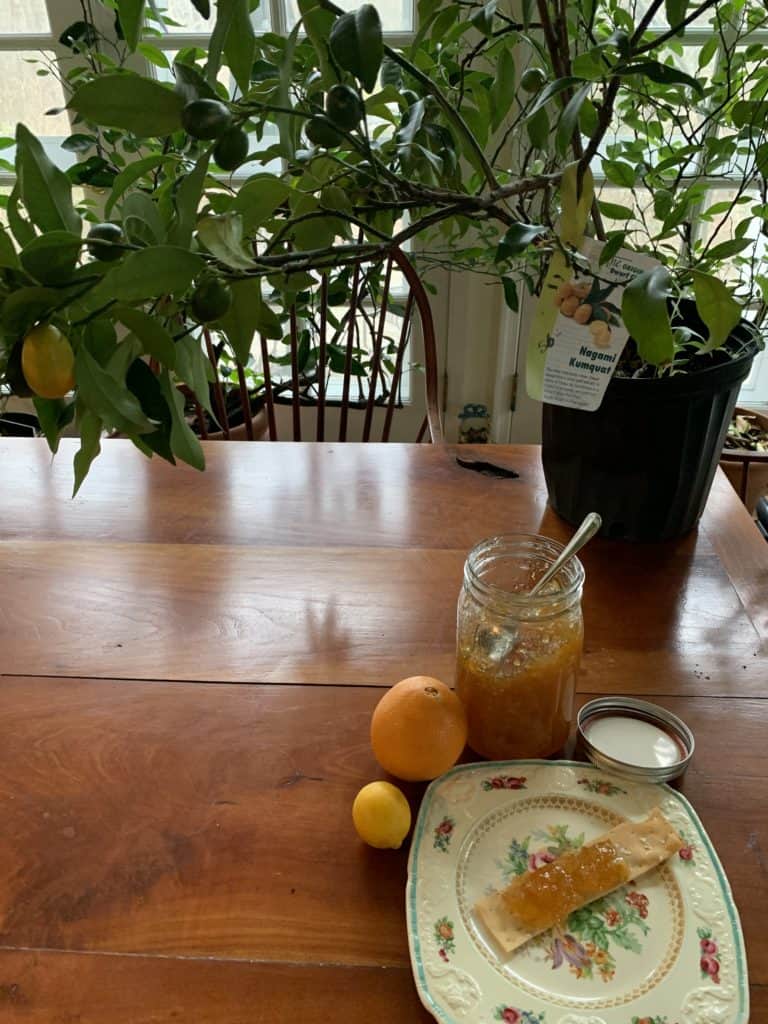Gardening for Health

When Life Gives You Lemons
By Maria Price
When life gives you lemons, make some marmalade.
I’ve been obsessed with growing citrus for 40 years. I grow them in pots so I can bring them indoors for the winter as they are not hardy in Maryland. I put the pots outside once frost has passed, in a sunny location. During the winter, my house is filled with pots of citrus with ripening fruit from November through February. Some varieties like kumquats, continue producing their little fruits continuously.
Native to the tropics of Asia, citrus flowers bloom and perfume the air even while fruit is still on the plant. My indoor jungle has citrus plants at every available window. I water them shallowly and frequently when the soil is very dry. Citrus root systems require excellent drainage. I use a soil-less media that allows good drainage. Nitrogen is important because citrus bears flowers and fruit on new wood. Phosphorus is important for flowering and fruit set. It also promotes root growth. From spring through summer, I fertilize every 4 to 6 weeks. Apply a granular Organic Materials Review Institute-approved fertilizer that is high in nitrogen, over 7%. Some options are blood meal (12%), Sustane (8%), fish meal (8%), Dr. Earth organic fruit tree fertilizer (7-4-2) and Citrus-Tone (5-2-6). Prune very lightly as citrus bear fruit at the tip of the current season’s growth.
This year I harvested a bitter orange known as bergamot orange; its essential oil is what flavors Earl Grey tea. I also harvested a sweet orange, a Ponderosa lemon (as big as a grapefruit), three Meyer lemons and five kumquats. These are what I used to make my own marmalade.
The recipe is quite simple. If you purchase fruit, make sure to wash them well. You could use two large navel oranges and three lemons; I recommend organic produce. Cut your fruit into wedges, remove the seeds and soak in 11 cups of water for 24 hours. Remove the fruit and put into a food processor. Pulse until everything is evenly chopped. Return the fruit to the water in which it was soaked. Boil 1 hour and add 8 cups of sugar. Boil the marmalade until the juice forms a jelly, roughly another hour. The gel that forms is the extraction of pectin which makes it thicken. Store in clean jars in the fridge. It’s absolutely delicious!
Limonene, which is found in citrus peel, has been shown to block some of the cellular changes that can lead to cancer. Limonene has also been shown to help eliminate estradiol, a hormone linked to breast cancer. Pectin is a soluble fiber that helps trap fat and cholesterol and excrete it. Pectin also slows the rate at which sugars are absorbed, helpful for people with diabetes.
